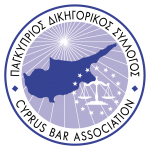The Civil Partnership Law of 2015 (no. 184(I)/2015) entered into force with its publication in the Official Gazette of the Republic on 9/12/2015 and was amended with its publication in the Official Gazette of the Republic on 17/8/2020. The Law introduces the institution of Civil Partnership into the Cypriot legal order. The basic authority with regard to its conclusion is assigned to the Registrar who is the Prefect. Civil Partnership entered into under the Civil Partnership Act 2015 (excluding the Adoption Act) has the same effects and consequences as marriage and any reference in the laws of the Republic of Cyprus to a spouse shall be construed as a reference to a partner.
The procedure for concluding a Civil Partnership takes place at the Provincial Administrations and before the Prefect who acts as Registrar. It is concluded exclusively by appointment in the province in which one of the persons concerned resides, or, if they do not permanently reside in the Republic, in the province of their choice. Where both persons applying for a civil partnership are tourists, they shall be free to choose the province.
For the determination of residence, either of the persons concerned may provide one of the following presumptions:
- Certification by the Parish Administrator of the parish concerned
- Utility service bill (water, telephone, electricity, etc.)
- Other public document showing address of residence
- Citizens of EU Member States or third country nationals may, in addition to the above, present a residence title/residence permit they hold, provided that the document they hold shows their address of residence.
Persons intending to enter into a Civil Partnership, after making an appointment at the relevant Provincial Administration, will fill in and sign the Civil Partnership form and submit it to the Prefect, paying a fee of €90.00.
Together with the civil partnership form, each person must provide:
- A valid and current identity card or passport or other equivalent travel document
- An affidavit stating that: (a) he/she has not entered into any other marriage and/or civil partnership that is currently in force; (b) he/she is not aware of any impediment or legal barrier to entering into the civil partnership; and (c) that all necessary consent has been obtained where required for entering into the civil partnership, or that no such consent is required
To be admissible, the Affidavit must be made before a Court Registrar and dated no earlier than one month from the date of its submission and/or use.
- A duly authenticated original or copy of a Freedom Certificate or other duly authenticated, equivalent original certificate issued by the competent authorities of the country of origin of the persons intending to enter into a civil partnership.
- If the Registrar is satisfied with the documents produced to accompany the completed and signed Civil Partnership Form, he shall invite the persons to make a declaration before him that they agree to enter into civil partnership. He then reads them a declaration that they are committed to cohabitation and that they identify their fates, undertaking to care for, support and stand by each other. He or she then duly completes and signs the Civil Partnership Form, which both witnesses will sign after showing their identity card or passport for identification and age purposes.
Finally, the Registrar issues and delivers to each of the partners a duly stamped and signed copy of the “Civil Partnership Certificate”, bearing the date on which the procedure before the Registrar is carried out and completed. This date is the date on which the civil partnership takes effect.
It is understood that for a civil partnership to be valid, it must be the product of free consent.
Freedom Certificate
The Freedom Certificate issued by the Cypriot authorities is a certificate issued by the Department of Civil Registry and Immigration in its capacity as Registrar of Marriages that no marriage has been performed in the Republic under the Marriage Act, that no religious marriage has been declared and that no Civil Partnership has been performed that is in force at the date of issue.
- Cypriot citizens present a Certificate of Freedom from the Registrar after the Registrar General has delegated this authority to them.
- Third country nationals and European citizens residing in the Republic and holding a temporary residence permit or a European Citizen Registration Certificate shall also secure and produce a Freedom Certificate from the CFCA to which they belong by producing a duly authenticated Freedom Certificate from their country of origin.
- Tourists (European and third country nationals) who enter the Republic with a limited permit, present a duly validated Freedom Certificate from their country of origin.
- European citizens, who intend to enter into a civil partnership with each other, present only a Freedom Certificate from their country of origin, excluding any accreditation in compliance with the provisions of Regulation 1191/2016.
- Subject to the provisions of Article 21C of the Law on Refugees, persons under civil protection status shall present a certificate of freedom from the competent authorities of the Republic, valid for 3 months from the submission of the form for civil partnership. Otherwise, the persons concerned will have to present a duly authenticated certificate of freedom from the competent authorities of their country of origin and a certificate of freedom from the competent authorities of the Republic, valid for 3 months from the date of submission of the form for civil partnership.
Procedure for obtaining a Certificate of Freedom from the TAPM
- A Freedom Certificate is issued by the CFCA upon application and payment of a fee of €34.17, with the submission of a number of supporting documents.
- The application must be submitted by each person individually and in person. Cypriots permanently residing abroad may apply to the competent Consular Authorities of the Republic of Cyprus.
- The accompanying documents are presented in original form, together with a photocopy.
- Public documents issued by foreign states must be accompanied by an official translation, made by a registered translator of the FVO in Greek or English and duly authenticated, either with the APOSTILLE stamp for the countries party to the 1961 Hague Convention, or with the stamps of the Ministry of Foreign Affairs of the country of origin and the competent Consular Authority of the Republic in that country.
- In case the Hague Convention on APOSTILLE has not been signed and if there is no Consular Authority of Cyprus in that country, the documents may be authenticated by Page 8 of 16 o stamps by the Ministry of Foreign Affairs of the country of origin, by the Consular Authority of that country accredited in Cyprus in Cyprus and subsequently by the Ministry of Foreign Affairs of Cyprus, or o by a stamp of the Ministry of Foreign Affairs of the country of origin and subsequently by the nearest Consular Authority of a State accredited in the Republic.
Cypriot Citizens submit their application with the following supporting documents:
- a duly completed by the applicant application form entitled “Application for Freedom Certificate”.
- Passport or Identity Card in valid form.
- Affidavit before a Notary Public that the applicant has not entered into a marriage, including a religious marriage, or an MA that is in effect, is not aware of the existence of a disability, and that all necessary consent has been obtained.
- In case of divorce of a prior marriage, including religious marriage, widowhood or dissolution of Civil Partnership, the corresponding duly certified and translated documents in Greek or English shall be submitted, as the case may be.
Citizens of Member States of the European Union submit their application with the following supporting documents:
- An application form duly completed by the applicant, entitled “Application for a Freedom Certificate”.
- Passport or valid passport or identity card.
- Certificate of Registration (Yellow Slip).
- Affidavit before a Notary Public that the applicant has not entered into a marriage, including a religious marriage, or a valid PC, is not aware of the existence of a disability, and that all necessary consent has been obtained.
- Freedom Certificate from the competent authority of the country of origin of the European citizen, accompanied by the multilingual document, as defined in Regulation 1191/2016 or translated into Greek or English.
- In case of divorce of a prior marriage, including religious marriage, widowhood or dissolution of civil partnership, the corresponding documents are presented, as appropriate.
Third-country nationals must submit their application with the following supporting documents:
- a duly completed by the applicant application form entitled “Application for Freedom Certificate”.
- Passport in force.
- Temporary Residence Permit whose further validity from the date of application shall not be less than one month. In case of less validity, proof of application for renewal shall be provided.
- Affidavit before a Notary Public that the applicant has not entered into a marriage, including a religious marriage, the PO in force, is not aware of the existence of a disqualification and that all necessary consent has been obtained.
- A duly certified and translated into Greek or English language Freedom Certificate from the competent authority of the applicant’s country of origin.
- In case of divorce of a prior marriage, including religious marriage, widowhood or dissolution of civil partnership, the corresponding duly certified and translated documents in Greek or English language, as the case may be, shall be presented.
This article is for information purposes only and in no way constitutes legal advice. For further information on this matter and the provision of specialist legal advice please contact us.


